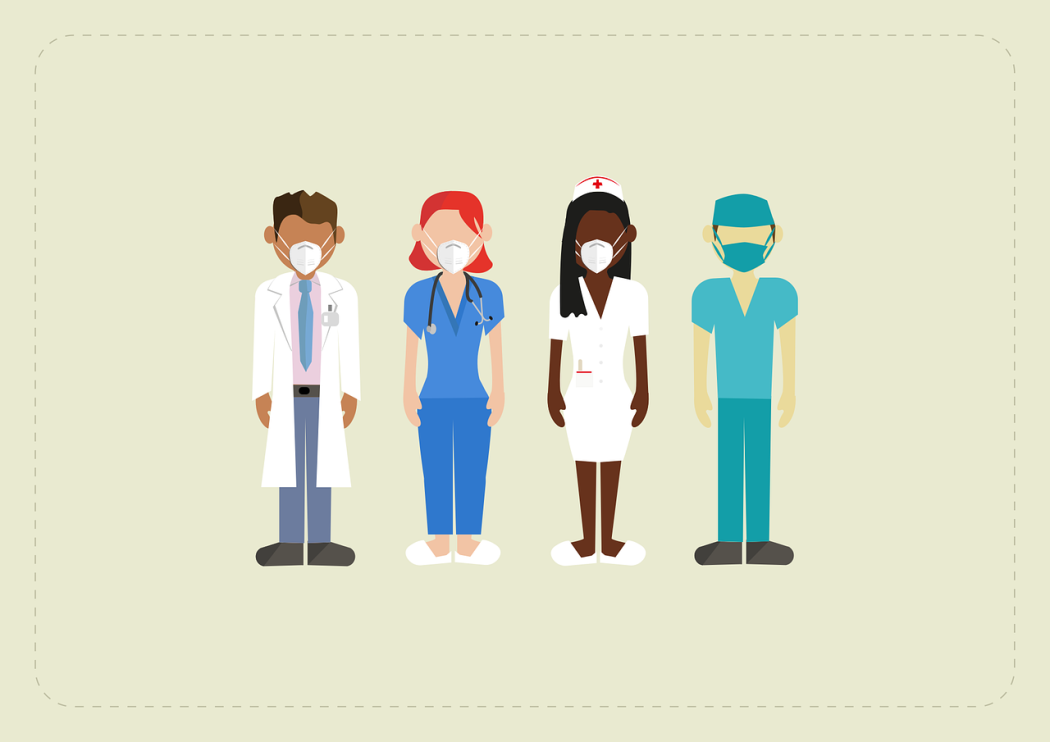On a recent clerkship rotation, I went to see a patient as I normally would. When I saw this individual and heard them speak, though, my mind started searching back to when or where I had met them before. I told them that I knew them and remembered working with them and they replied that it was from when they were rehabilitating from a surgery. However, this surgery wasn’t from my time as a medical student. Though I am a 4th year medical student now, I had originally met them several years ago during my career as a physical therapist. I spoke with them about their current needs. I thought about how prior to this day I might have existed to them as a PT and now a new version of me was a different part of their medical team. I had assisted them through exercise and manual treatments with expertise, and now as a medical student, I was presenting to my attending my thoughts about what their care plan should be. It made me reflect on how much my role in their care had changed, but how fundamentally I had the same goal for them: to help them be their best self.
A patient meets many different people in their interactions within the healthcare system, including nurses, doctors, occupational and physical therapists, speech pathologists, physician assistants and mental health counselors- just to name a few. How often do we, as the health care professional, consider how overwhelming it can be to have so many new people introduced in the vulnerable times of disease or dysfunction? Do we ponder how a patient needs to place trust and hope into each specialist with the stakes being their only body and mind? Additionally, what respect do we give to others working around us? How often do we contemplate what trials might exist for other members of the care team? How often are we appraising our behavior and actions toward someone that might be doing a different job than us or have an alternative opinion about what our patient might need?
Whether healthcare is a calling or a profession for each member of the team involved, our duty to respect and do our best remains the same. At the same time, we are not other-worldly beings, we are human. The nurse administering vaccines might be waiting on news about the offer they made on a home. A doctor reading an ECG might be trying to make it to their child’s soccer practice on time. Or perhaps the physical therapist assessing your balance might be waking up before work each day to study for the MCAT.
I am fortunate to have experienced going through the student period for a healthcare career more than once and as a professional for five years. I have been able to observe the good and the bad of how people within and outside my fields have interacted. I would be lying if I said there had not been dozens of times that an insufficient amount of respect was given to associates of different disciplines as well as patients. When we blindly establish ourselves in exclusive groups, we create an unfortunate in-versus-out dynamic. Interprofessional cliques serve no useful purpose when considering the best care for our patients and selves.
I will not be the last person to change healthcare careers, but my perspective does teach lessons for a path to progress. First, do not reduce others from a different healthcare specialty to a stereotype. Individual backgrounds and aspirations mean that no two are alike and all deserve unique consideration. Next, do not conclude that others are static. Everyone has dynamic capacity for growth, learning, and change whether involved with their scope or not. Last, respect that everyone you interact with exists as an entire human with full lives outside of that specific instance. This list is not completely comprehensive, but it provides a good framework upon which to build functional work relationships.
When time was up with the patient I had formerly helped as a PT, they genuinely thanked me for the care I had given them in the past and now. We closed, and they wished me well on my current path. I hope through our relationship I fulfilled my roles to help them in whatever capacity I was working in at the time. I took away the conclusion that I am both the same and different than I was before. I hope that I can always give that same respect to all patients and fellow interprofessional care team members.
Ty is a former physical therapist who grew up in Phoenix and loves U of A. He’s striving to be the become the best dad, husband, and doctor he can be.

